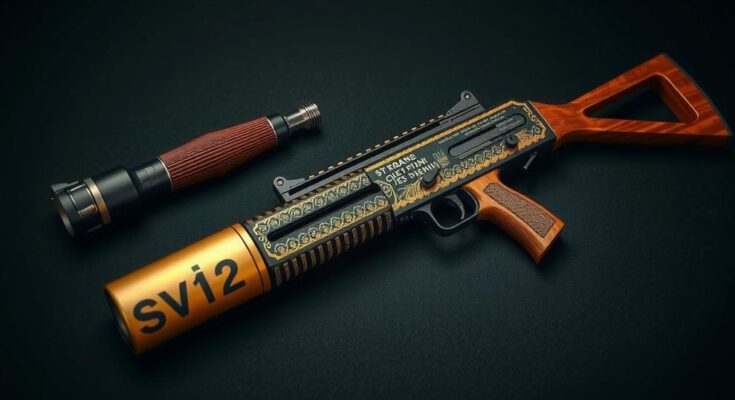Amnesty International has uncovered that Emirati armored vehicles with French military technology are being used by Sudan’s Rapid Support Forces (RSF), potentially violating a UN arms embargo. The report calls for a stop to weapon supplies to all parties in the conflict. Amnesty emphasizes the need for effective enforcement of arms embargoes in response to the humanitarian crisis in Sudan, which has already inflicted substantial casualties and displacements.
Amnesty International has disclosed that the Sudanese Rapid Support Forces (RSF) are deploying armored carriers manufactured by the United Arab Emirates (UAE), integrated with French military technology, amidst the ongoing civil conflict in Sudan. The organization highlighted the possibility of a breach of the United Nations (UN) arms embargo on Darfur, calling for an immediate cessation of weapon supplies to all factions involved in the conflict. In a report published on November 14, 2024, Amnesty detailed the involvement of the UAE’s Edge Group in the production of armored vehicles outfitted with the French-made Galix reactive defense system, intended for protection against threats. Notably, the Sudanese army has reportedly captured and destroyed these armored personnel carriers, identified as Nimr Ajban APCs, which the RSF has utilized in combat against the Sudanese Armed Forces (SAF). The presence of such military vehicles in the Darfur region raises concerns of a potential violation of the UN arms embargo, which prohibits the transfer of weapons to Sudan, especially in light of its history of conflict with armed groups, including the RSF. In response, Agnès Callamard, Secretary-General of Amnesty International, has urged the French government to halt any further supply of these defense systems to the UAE, citing that their deployment in Sudan contravenes international arms regulations. While the UAE government has refuted claims of providing weaponry or support to the RSF, Amnesty’s findings stress the critical need for stringent enforcement of arms embargoes to avert further violence in Sudan. The ongoing civil war in Sudan, ignited in April 2023, has resulted in over 20,000 fatalities and displaced nearly 12 million individuals. The conflict, fueled by sophisticated weaponry, has given rise to grave human rights violations, including ethnic cleansing, sexual violence, and widespread dislocation of populations. UN officials, including Under-Secretary-General Rosemary DiCarlo, have continuously advocated for external supporters to cease arms supplies, emphasizing that ongoing transfers exacerbate the violence and obstruct peace initiatives.
The revelation of UAE manufactured arms in the hands of Sudan’s RSF underscores significant concerns regarding the enforcement of international arms restrictions. The UN arms embargo on Darfur aims to control the flow of weapons into a region plagued by conflict and humanitarian crises. The RSF’s use of advanced military technology not only raises questions about existing arms regulations but also highlights the broader implications for human rights in conflict zones, stressing the critical intersection of military support and humanitarian consequences. The civil war in Sudan, marked by severe human rights abuses and massive displacements, necessitates stringent international oversight to protect vulnerable populations.
In summation, the findings presented by Amnesty International concerning the use of UAE-designed arms by the RSF in Sudan underscore the urgent need for strict compliance with international arms embargoes. The ongoing conflict, characterized by extensive human rights violations, further emphasizes the detrimental impact of external arms supplies, making it imperative for global stakeholders to reassess their military support to combatants in this crisis. As violence escalates, a concerted international effort is essential for peace and stabilization in Sudan.
Original Source: www.jurist.org




